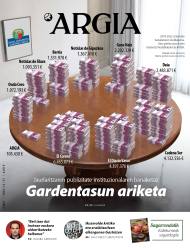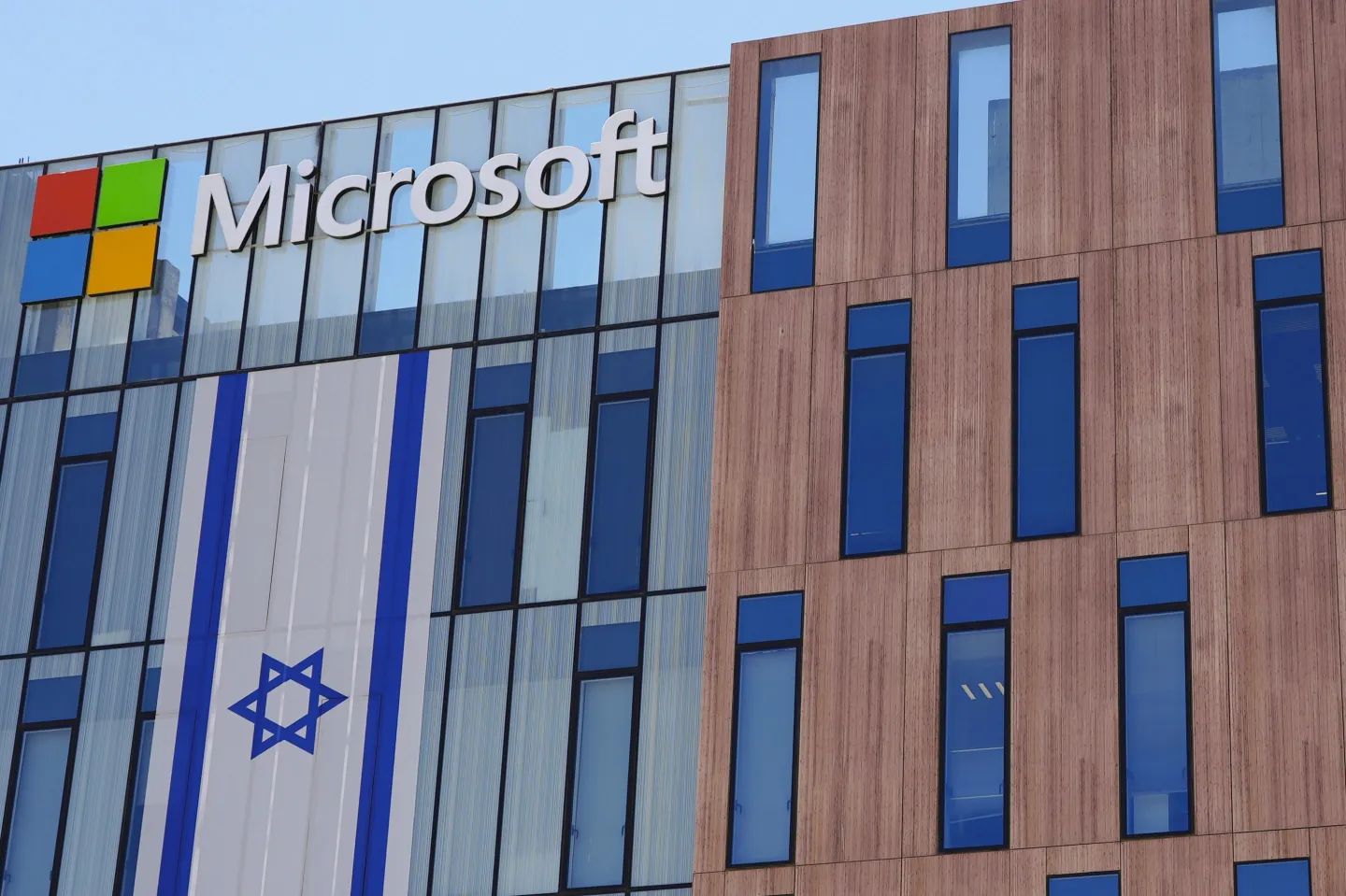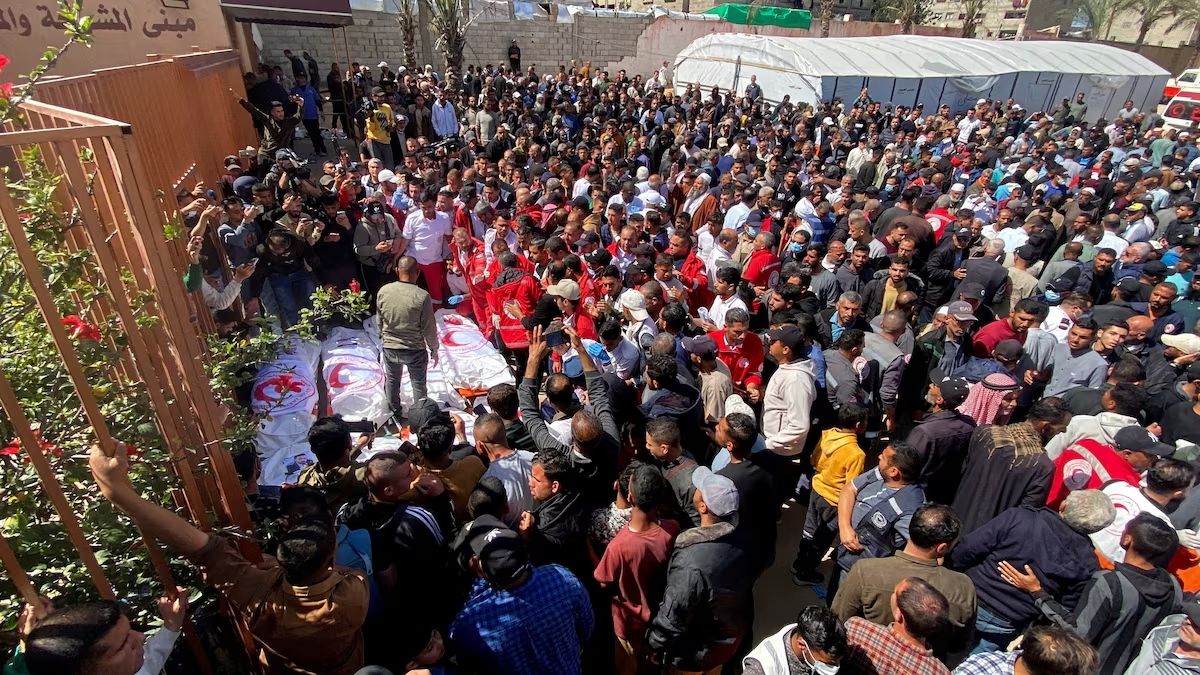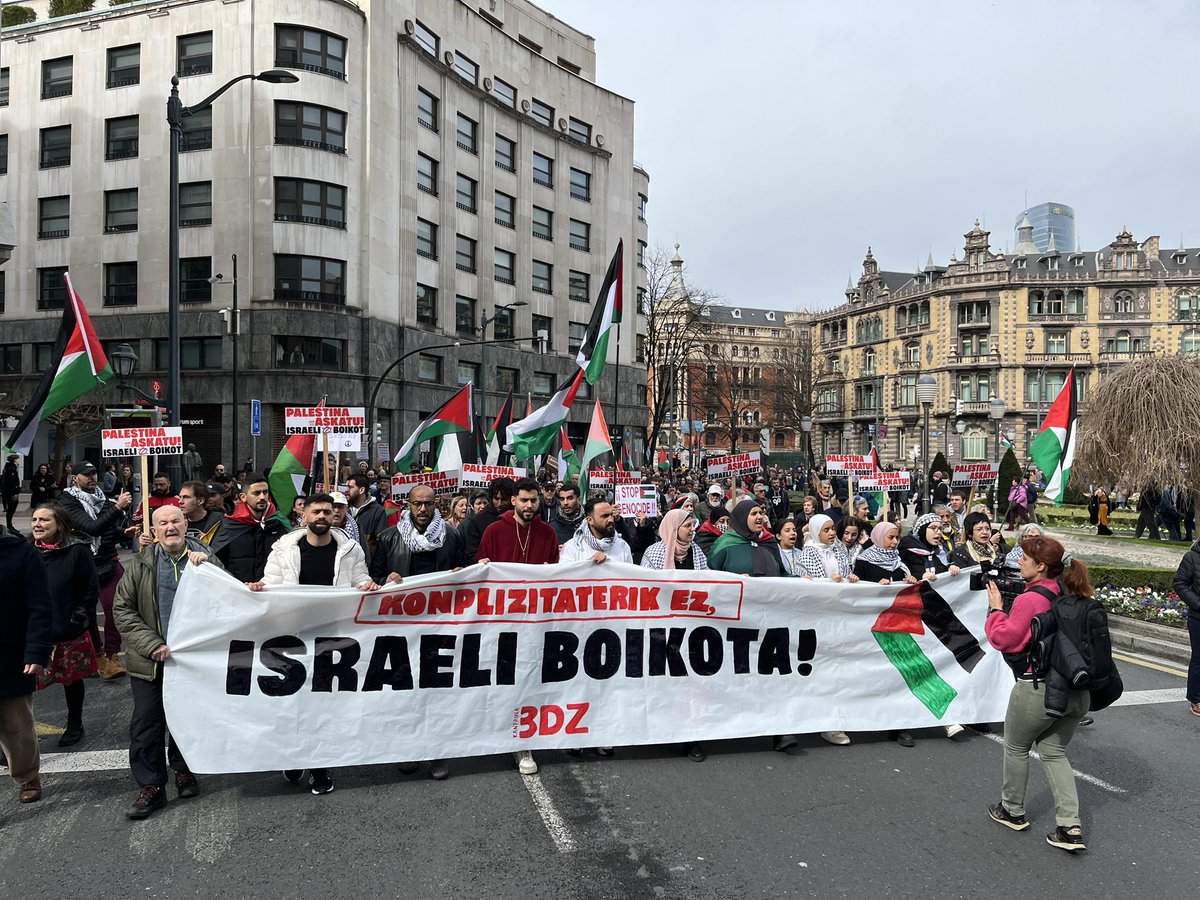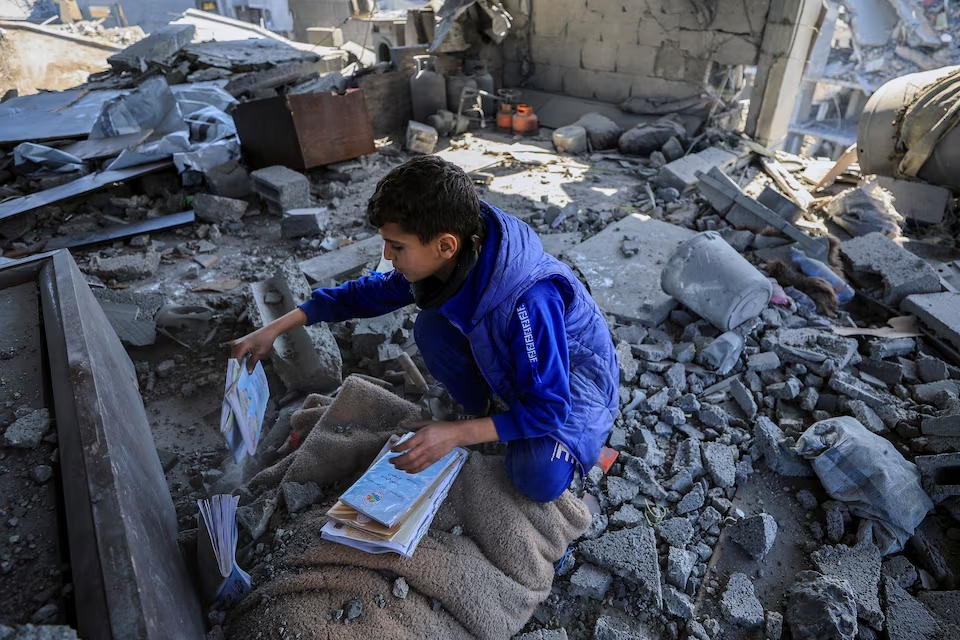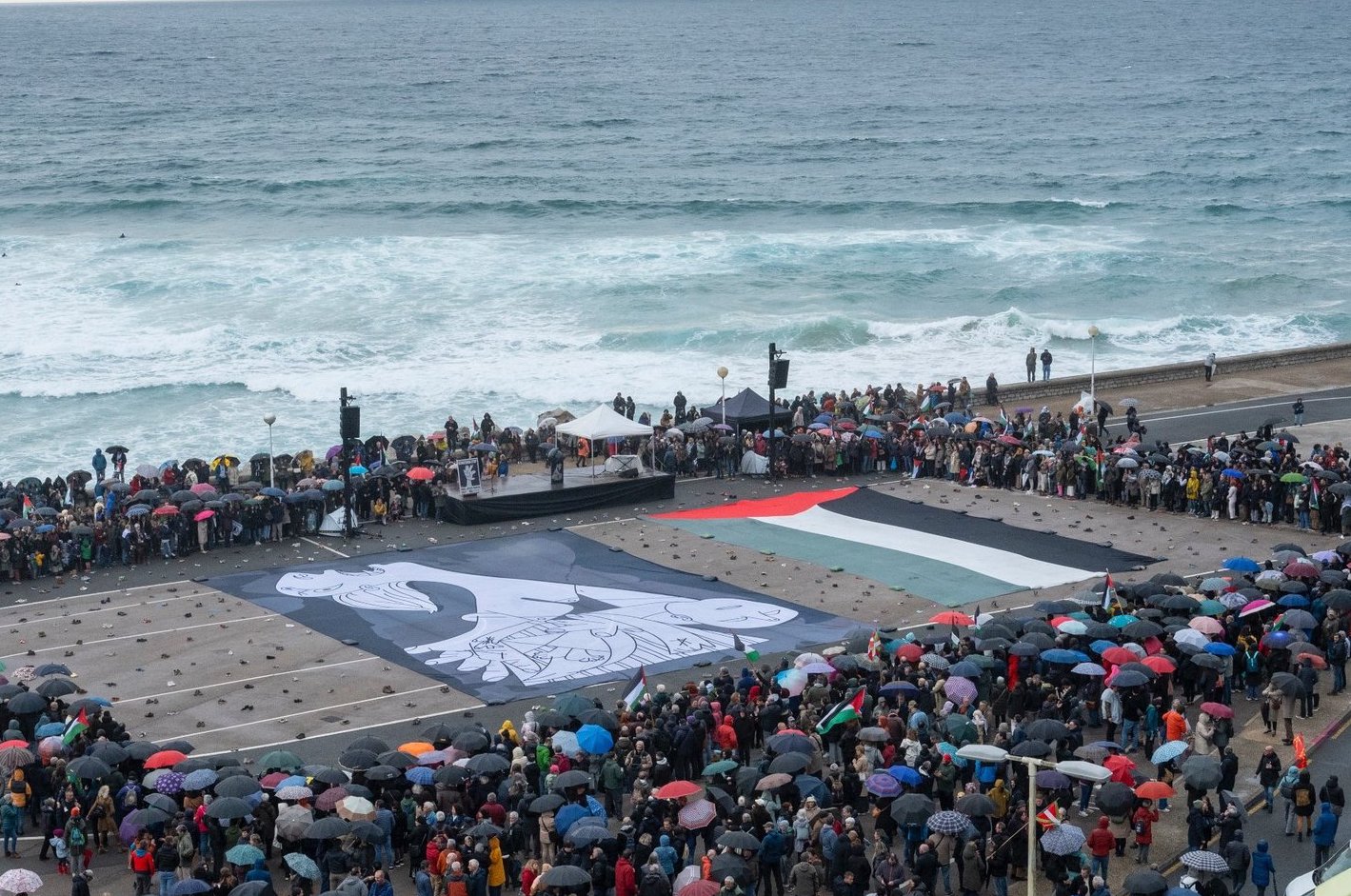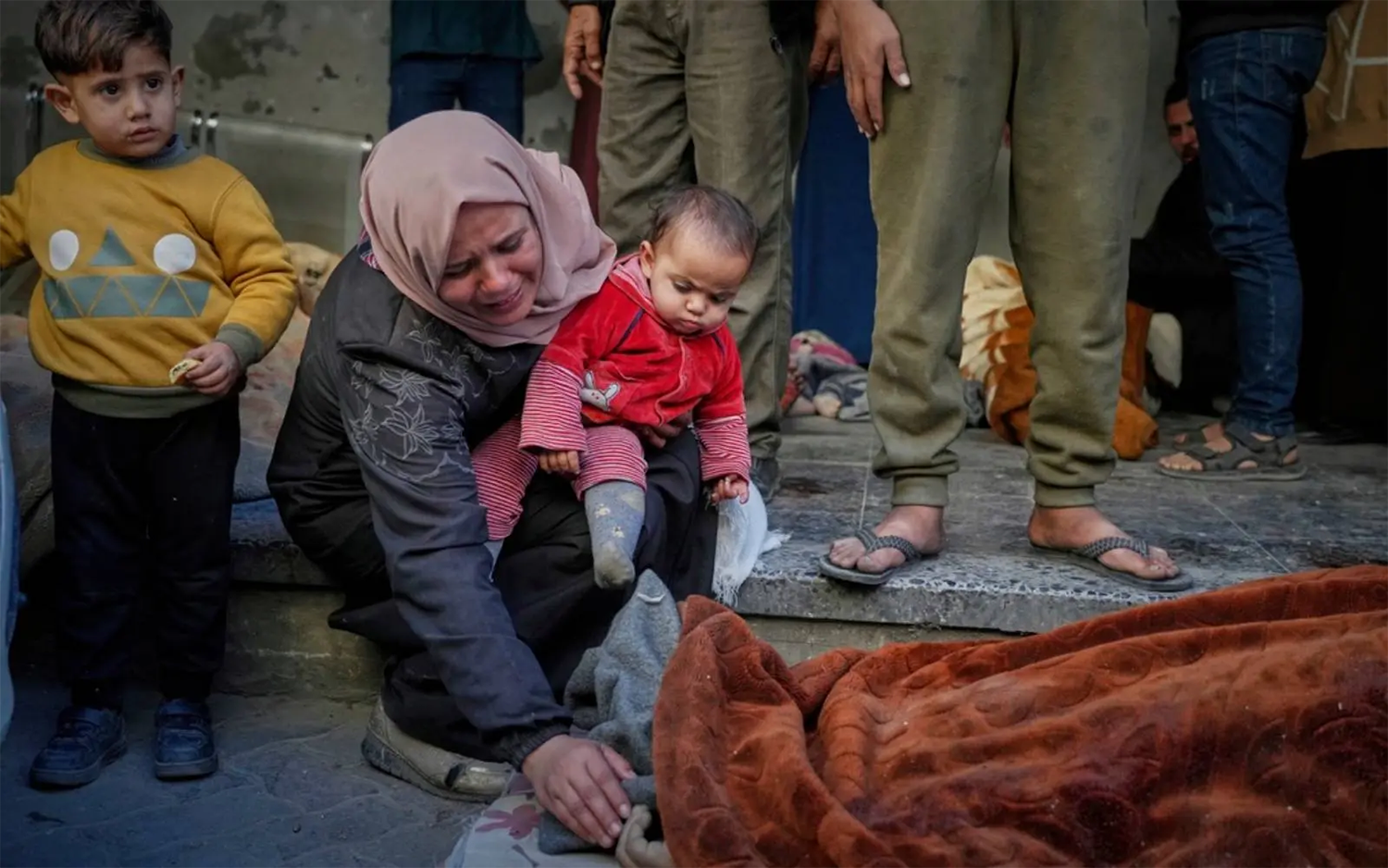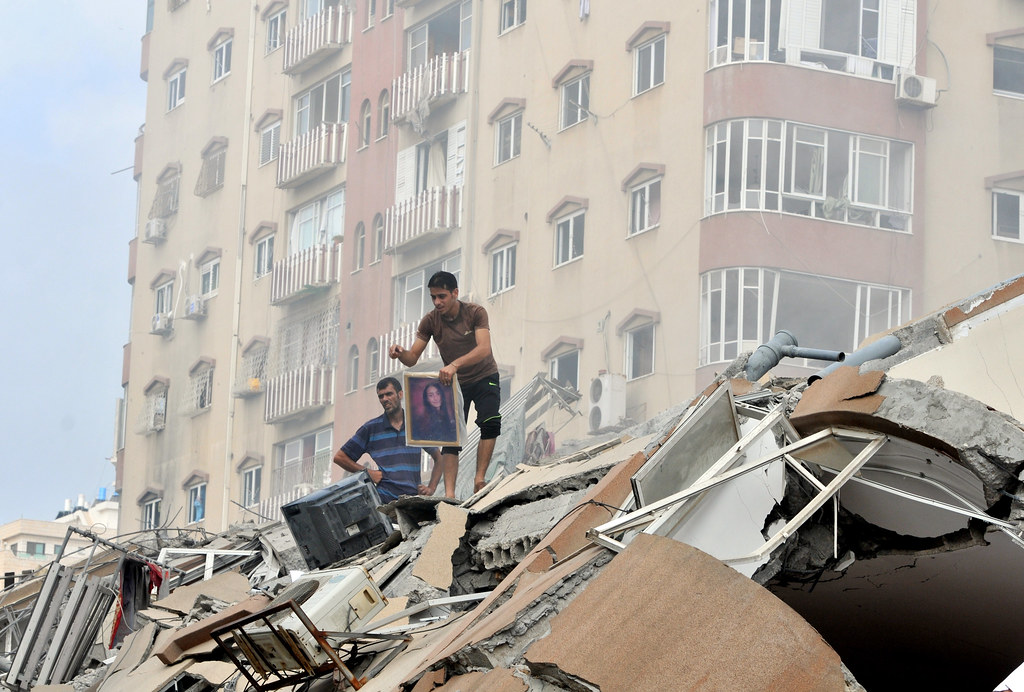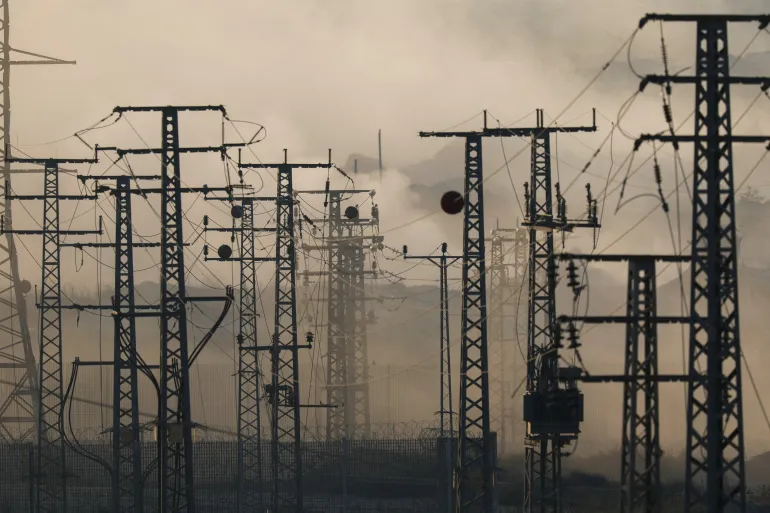Terrorism or resistance? How can we talk about Palestine?
- Pressure from the Zionist Lobby has distorted the story of Palestine with the help of the major media in the global north. Many journalists have questioned this hegemonic narrative, uncovered multiple manipulative tactics and disseminated recommendations towards a fairer story.

On 28 November, a seminar was held organized by the Peace and Dignity Associations, BDS Bizkaia and Badil. They analyzed and questioned the media story about Palestine. “War vs. genocide, occupation vs. colonialism, terrorism vs. resistance.” Lubnah Shomali, a member of the Badil Association for Palestinian Rights, opened the way with the speeches of Teresa Aranguren, Yolanda Álvarez, Koldo Alzola, Isabel Pérez and Patricia Simón.
Lubnah Shomali explained that Israel attaches paramount importance to the media war. “For Israel there can only be a narrative. That Israel is the only democracy in the Middle East, it is a victim and defends itself in the fight against terrorism. That is the story that Israel needs to guarantee its legitimacy and justify human rights violations.” He criticized that Israel has managed to put this narrative into mainstream media in the West.
Teresa Aranguren stressed that the Zionist movement is based on the denial of the Palestinian people. “At the beginning they claimed that Palestine was a land without a people for a landless people, and today they maintain the same idea.” Israel also uses strategies to dehumanize Palestinians and depict them as demons, Shomal said. “As has happened with many other oppressed peoples, the oppressed are represented as non-civilized, barbaric, terrorist or human animals.”
In the global North media, particularly in Europe and the US, Israeli discourse predominates, as the rapporteurs denounced. Journalist Isabel Pérez made her doctoral thesis to analyze media discourse on Palestinian Islamic Jihad. Based on the conclusions of the work, he stated that Israel establishes a hegemonic semantic field for journalists and punishes everything that moves away from that narrative. Thus, it is very difficult for journalists to talk about Hamas, “because you are immediately welcomed as a Hamas activist.”
“When we talk about occupation and apartheid in Palestine we are considered activists, despite using the methodology of international humanitarian law to
work” Patricia Simon
The journalist Yolanda Álvarez is aware of the negative consequences that can be reported on the oppression of the Palestinians. In 2012 and 2014 he reported offensives against Gaza from Gaza and received numerous awards for his work. However, he denounced that the follow-up carried out in 2014 had been neglected on Spanish public television and has not been sent back to the Middle East, despite being one of the longest in the Gaza Strip. The Israeli embassy named him a Hamas activist for his work in the 2014 massacre.
The spectre
of anti-Semitism and hate speech is used by Israel to silence criticism of its policies. Patricia Simon explained that the Zionist lobby has invested money to press in that direction in the European Union. “Hatred is a measure of acceptance of anti-discourse norms, but they are measures to criminalize any discourse that really questions the occupation of Israel.” Simon says that the Spanish Government has also respected these pressures. The government has account control algorithms that spread hate speech on social media, but “some Zionist NGOs have introduced in these algorithms words like ‘anti-Zionism’, ‘Israel’ and ‘occupation’. These concepts are considered directly as hate speech”. The protocols of the Government of Spain include in the list ‘trola and usual words of racist users’, ‘BDS’ (boycott, divestment and sanctions), ‘Free Palestine’, ‘Apartheid’ or ‘defend human rights’, in the same sack of ‘Stop Islam’ and ‘IV Reich’.
Terrorism or resistance Speakers do not
believe it is right for the media to nominate the terrorist group Hamas. This name has become commonplace in the global north, but, as Yolanda Álvarez said, “in many other parts of the world they do not understand it that way and journalists are not to say who is a terrorist group. This is the Islamic Resistance Movement, as we should call it.” He explained that media like BBC and Associated Press are prohibited from using the word terrorist in their style books. Isabel Pérez highlighted media pressure on this issue. The French Senate called the director of the AFP agency to state to ask him why they don't put the terrorist word when they talk about Hamas. “The director said that they could not decide that and that they have many clients from the global South, who do not regard Hamas as a terrorist, but as a resistance movement.”
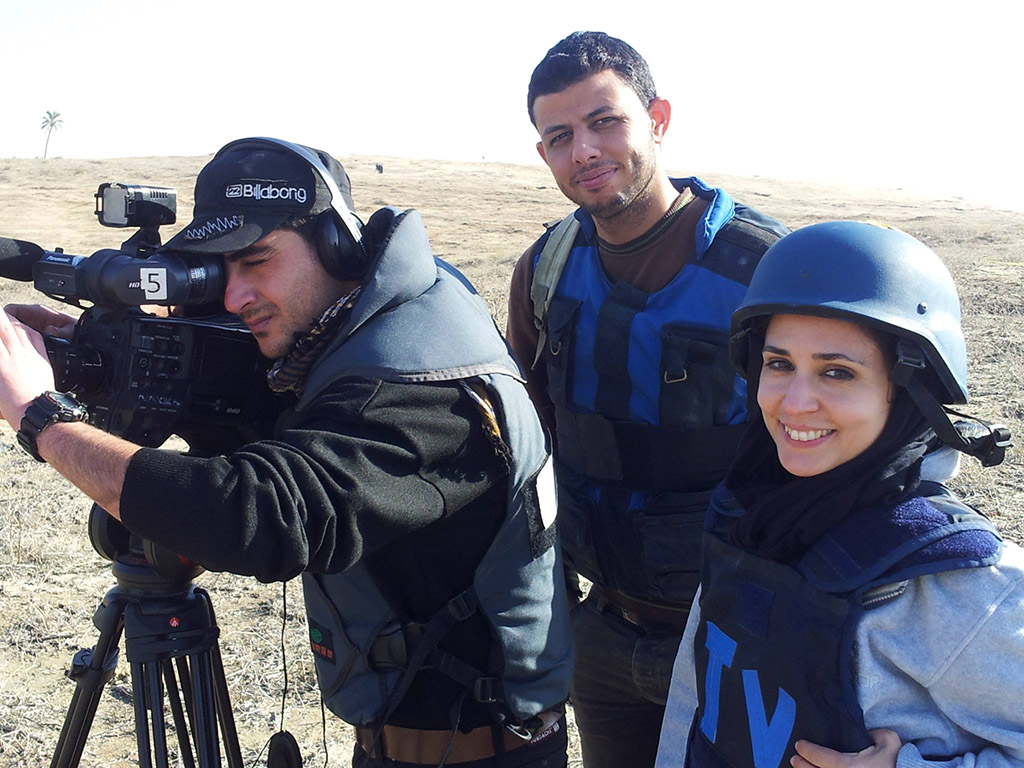
Patricia Simon explained that, since the last war in Gaza, Israel made the news about Palestine virtually impossible in the media. “It has become normal that the Palestinian people are oppressed and no longer seen as news. The concept of occupied territories has disappeared from the press, the media has given up.”
Considering the current situation of oppression as normal, Lubnah Shomal warned that journalists’ work is to contextualize and introduce the colonial origin of the conflict. He denounced that the Hamas attack was counted in the mainstream media as if it had emerged from nothing. In our case we have also had that expression. The head of EBB, Andoni Ortuzar, said on the Spanish public television network that “the origin of the conflict was the terrorist attack by Hamas”, and that the second was whether or not the Palestinian state should be recognized.
International law was enacted
by Lubnah Shomali to try to make a more objective reading. “Israel is granted the right to defence, but they are an occupying force, that right is not theirs.” He recalled that the situation of colonization and occupation activates the right to resistance of the Palestinians, for which “all means can be used”. He denounced that in the media we did not hear resistance, but murder and terrorism. He noted that the right of Palestinians to confront the colonial oppressor is “both through armed struggle and with strategies without weapons. For example, launching BDS campaigns or going to the International Courts of Justice are legitimate on the part of the Palestinians, but Israel says they are direct attacks on him.”
For Isabel Pérez, the best dams to build a story as a journalist are international law and humanitarian law. But Teresa Aranguren explained: “Reality is so distorted that when a journalist uses the language of international law he is a Palestinian activist who appears.”
The rapporteurs do not think it is right for the media to appoint the terrorist group Hamas
War or genocide The
talk also addressed the debate we have seen in recent weeks. What is happening in Gaza is called war or genocide? Lubnah Shomali clearly said it's genocide. “Israel has killed thousands of civilians in recent weeks and forced the displacement of nearly two million Palestinians to drive out of Gaza. War is crimes and has no other name than genocide.” In view of the fact that Israel’s attacks target the civilian population of Gaza, the rapporteurs considered that the “Israel war against Hamas” has been rated by the rapporteurs to the events of recent days in various media. Koldo Alzola criticized that the title of the news in ETB indicated this until the end of November.
Shomali denounced the silence and complicity of the international community. He warned that Israel was not responsible for the actions taken and that the international community recognized him for impunity. “Responsibility is transformed manually, the United Nations gives money to rebuild Gaza and Israel is free to kill thousands of people and destroy Gaza.”
Credibility of whom?
Yolanda Álvarez claimed the need to contrast the information. He complained that some of his colleagues from RTVE unquestionably accepted the information sent by Israel. “That Israel has attacked 200 military targets in Hamas? And how do you know that they were members of Sixteen if they haven't allowed journalists in? All we see here are the destroyed hospitals.” Koldo Alzola also criticized the media for disseminating readily refutable information. “Several chains said the Al-Shifa hospital had an arsenal. If we analyze it from a critical point of view, it was clear that the images shown were montages.”
On the contrary, the information sent by Sixteen is generically disseminated as uncredible information, according to Álvarez. He commented that it is good practice to refer to the source of the data, but stated that the data of the Palestinian victims are very questionable, and that based on his experience he has disseminated very reliable data in the previous battles of the “Hamas controlled Gaza Health Service”.
In this narrative struggle, the interlocutors asked the journalists for courage. Patricia Simon summarized the message: “When we talk about occupation and apartheid in Palestine, we are considered activists, although we use the methodology of international humanitarian law. In South Africa we would not understand that the journalist ' s attitude is not against apartheid.”
Gure Haurrak ere Badira ekimenak deituta, Israelek azken egunetan Gazan hildako gehienak haurrak direla salatu dute. Gobernuei eta erakundeei Israelekin harreman oro etetea ere exijitu diete, "genozidio honen aurka argi eta tinko" lerratu daitezen.
No other land dokumentalaren zuzendari Hamdan Ballal kolono sionistek jipoitu zuten astelehenean bere herrian, beste hainbat palestinarrekin batera, eta Israelgo militarrek eraman zuten atxilo ondoren. Astarte goizean askatu dute.
Asteartean menia apurtu zuenetik gutxienez 650 palestinar hil dituzte sionistek, Al Jazeeraren arabera. Netanyhauren gobernuak Shin Bet zerbitzu sekretuetako buru Ronen Bar kaleratzeko erabakia hartu du, baina Auzitegi Gorenak kaleratzea geldiarazi du.
Milaka pertsona bildu dira larunbat honetan Palestinako herriari elkartasuna adierazteko eta “Israelek Gazan egindako genozidioa” amaitzeko eta Benjamin Netanyahuren gobernuak su-etenari berriro ekiteko eskatzeko. Gernika-Palestina herri ekimenak deitu du martxa,... [+]
Palestinarekin Elkartasuna plataformak osteguna, ostiral eta larunbatean eginen ditu protestak, Israel genozida. Palestinar erresistentzia aurrera! lelopean. Gernika-Palestina-k ere manifestazio nazionala antolatu du larunbaterako Donostian. Euskal Herriko Kontseilu Sozialistak... [+]
500 palestinar hil ditu Israelek, horietatik 130 baino gehiago adin txikikoak, su etena apurtu eta bigarren egunean. “Hasiera baino ez” dela ohartarazi du Netanyahuk.
Israelek eraso masiboak abiarazi ditu berriro ere Gaza osoan: Khan Younis eta Rafan Gaza hegoaldean, Gaza Hirian iparraldean eta eta Deir el-Balah-n erdialdean. "Familiak seme-alaben gorpuzkiak eskuetan zituztela iristen ziren ospitalera", adierazi du lekuko batek.
Israelek Gazarako su-etenaren urraketa ugari egin ditu urtarrilaz geroztik: zerrendako palestinarrak oinarrizko laguntzarik jaso gabe egon dira ia astebetez, eta Netanyahuk azken egunetan mehatxu egin ondoren, argindarrik gabe utzi ditu orain. Dohan ordezkari estatubatuarrekin... [+]







